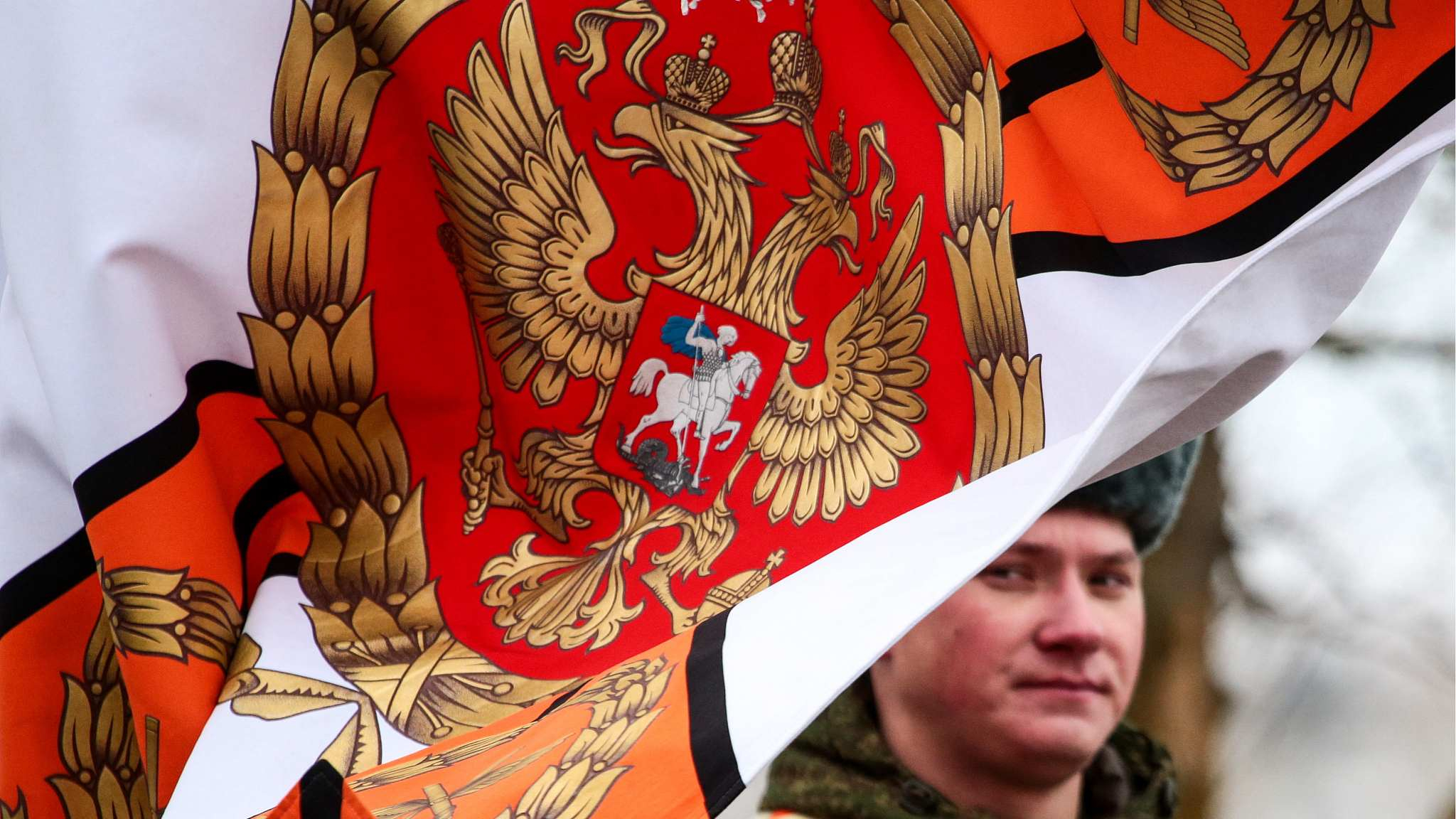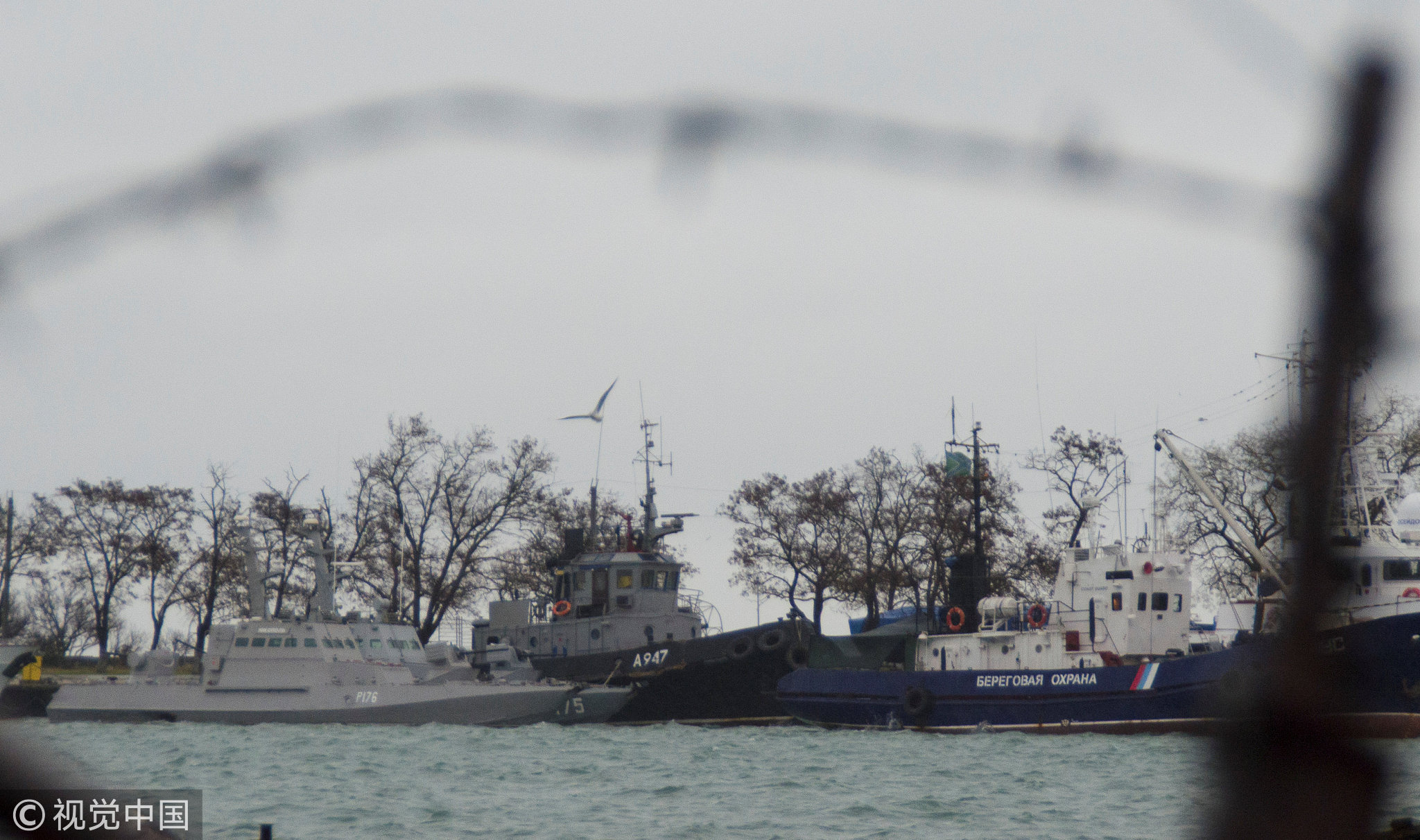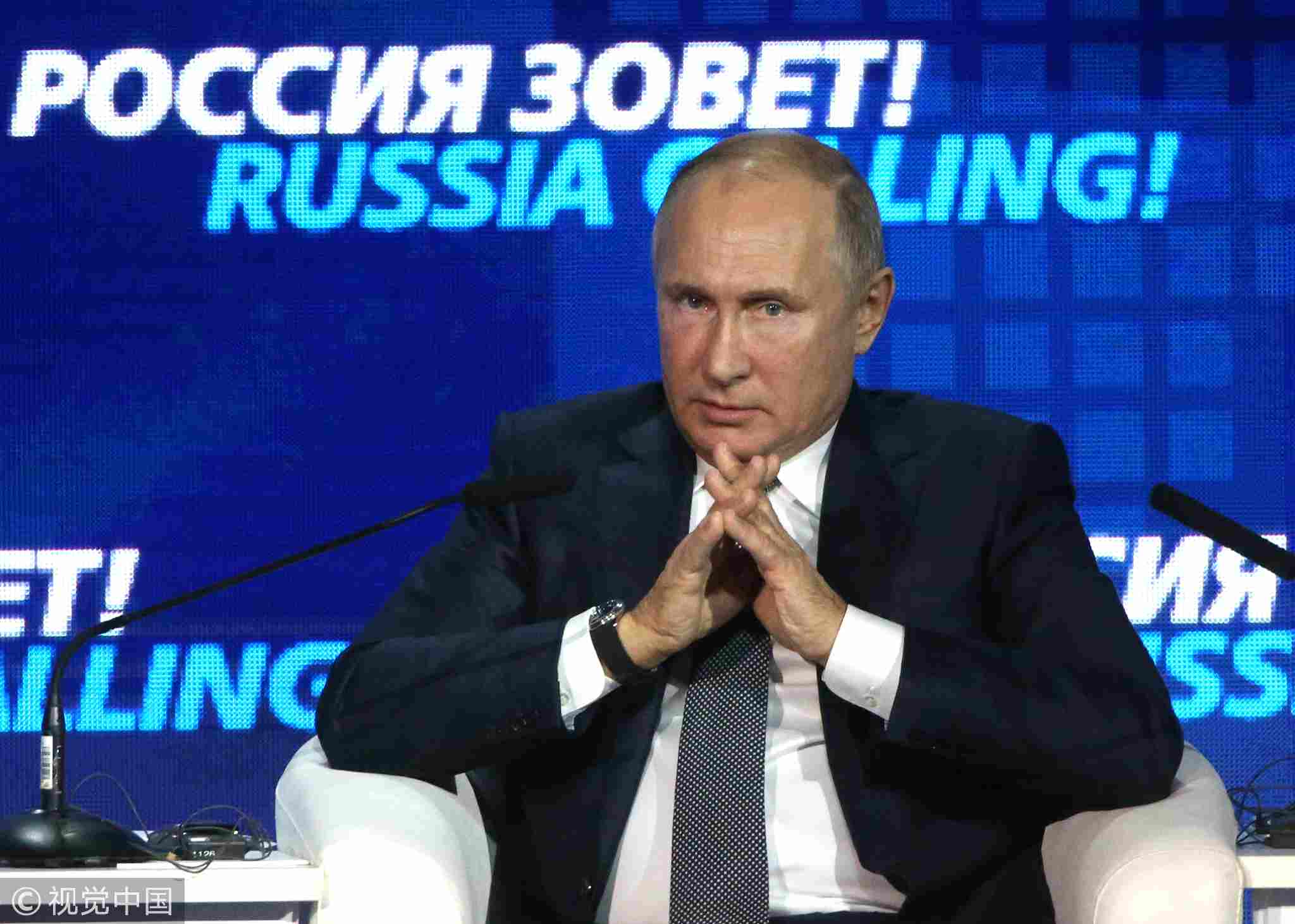
Opinions
15:40, 30-Nov-2018
Opinion: When brothers fight, both lose
Updated
15:19, 03-Dec-2018
Kang Jie

Editor's note: Kang Jie is an assistant research fellow at the China Institute of International Studies. The article reflects the author's opinion, and not necessarily the views of CGTN.
On November 25, tensions between Russia and Ukraine escalated over the detention of three Ukrainian navy vessels outside the newly built Kerch Strait Bridge. The dispute in the Sea of Azov was not new, but the timing of the Kerch Strait crisis was really intriguing.
The incident occurred 4 months ahead of the Ukrainian presidential election and a week ahead of the planned Trump and Putin's meeting at the G20 summit. However, this highly expected meeting was canceled unilaterally by President Trump due to the naval clash between Russia and Ukraine. Still, Kremlin expressed readiness to resume contact with the U.S. side.

Three Ukrainian naval ships were recently seized by Russia's FSB security service in a port in Kerch, Crimea, November 28, 2018. /VCG Photo
Three Ukrainian naval ships were recently seized by Russia's FSB security service in a port in Kerch, Crimea, November 28, 2018. /VCG Photo
The Kerch Strait crisis cast another sharp blow on the dream of potential détente between Russia and the West.
The European Union (EU) and Germany expressed serious concern over the dangerous escalation in the Azov Sea and the Kerch Strait. Some European politicians urged EU to toughen its sanctions against Russia. German Chancellor Angela Merkel also promised to raise the issue of the release of captured Ukrainian sailors at her meeting with Putin.
Ukrainian President Petro Poroshenko has recently called on The North Atlantic Treaty Organization (NATO) to reinforce its maritime existence on the Black Sea and Azov Sea, and asked Turkey to close the Bosporus access for Russia. In the fear of triggering an all-around confrontation with Russia, it seems that neither NATO nor U.S. may follow Mr. Poroshenko's requests. Nevertheless, NATO and the U.S. may transfer more gunboats and patrol ships to the Ukrainian Navy, which could fuel a long-term Black Sea maritime competition.
On the Russian side, there's no crisis but only a minor border incident. As Putin stated, the incident was an "organized provocation" and a "pretext for martial law", manipulated by Poroshenko to reverse his unpopularity. Ukraine will hold its presidential election on March 31, 2019, and the most supported one is Yulia Tymoshenko. Tymoshenko is generally considered to be more pragmatic on foreign policy and holds less Russophobia than Mr. Poroshenko.

Russian President Vladimir Putin speaks during the VTB Capital Investment Forum "RUSSIA CALLING!" 2018 in Moscow, November 28, 2018. /VCG Photo
Russian President Vladimir Putin speaks during the VTB Capital Investment Forum "RUSSIA CALLING!" 2018 in Moscow, November 28, 2018. /VCG Photo
According to some Ukrainian analysts, there are some doubtful points during the imposing of martial law. Sonya Koshkina, the chief editor of news websites LB.ua, found the length and content of the martial law changed for several times even in 12 hours, then doubted the real military necessities behind it.
Neither country could afford a serious escalation. The Kerch strait that connecting the Black Sea and the Azov Sea has significant strategic and economic importance for Ukraine. The escalation of confrontation and the implementation of the martial law will starve the port cities such as Mariupol and Berdyansk, which agricultural goods and steel shipments would have to be redirected to different ports.
These activities will increase the cost of agricultural goods and steel exports, bringing harmful effects to the Ukrainian economy. The crisis may also magnify the fragility of the Ukrainian financial system. For Russia, tougher sanctions from the West will exacerbate its bleak economy.
In 2018, the Ukrainian economy has achieved modest growth since the Crimean crisis. Domestic consumption and foreign trade have improved, and agricultural production has set a new historical record. The Ukrainian people should not be the victim of politicians' parochial speculations and great power geopolitical competitions.
For Ukraine and Russia, political compromises are essential for both sides to live through a hard time. When brothers struggle with each other, both sides will suffer, and the outsiders will take advantage of their disputes. The two sides should resolve their differences through various means such as bilateral dialogue and multilateral arbitration.
(If you want to contribute and have specific expertise, please contact us at opinions@cgtn.com.)

SITEMAP
Copyright © 2018 CGTN. Beijing ICP prepared NO.16065310-3
Copyright © 2018 CGTN. Beijing ICP prepared NO.16065310-3